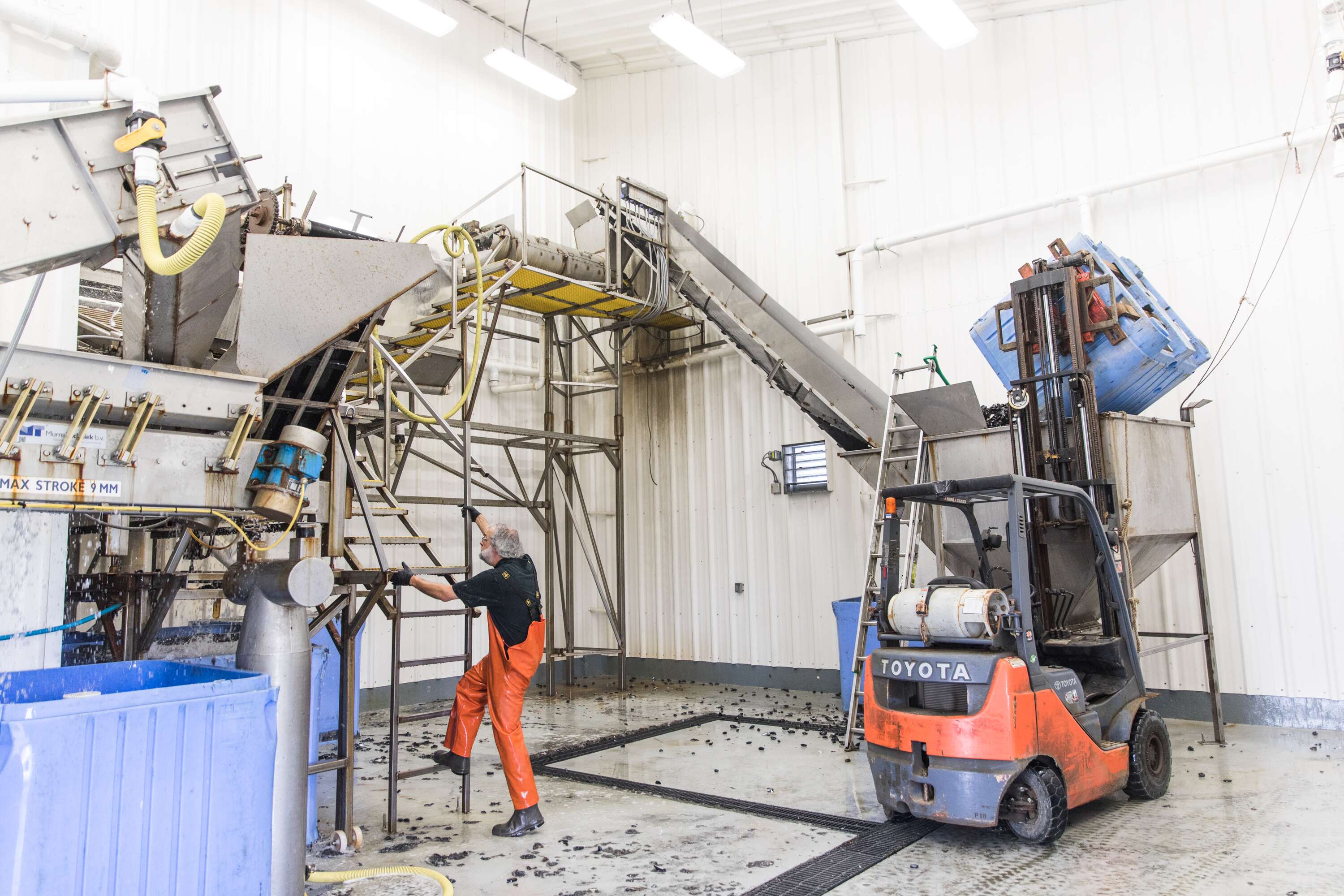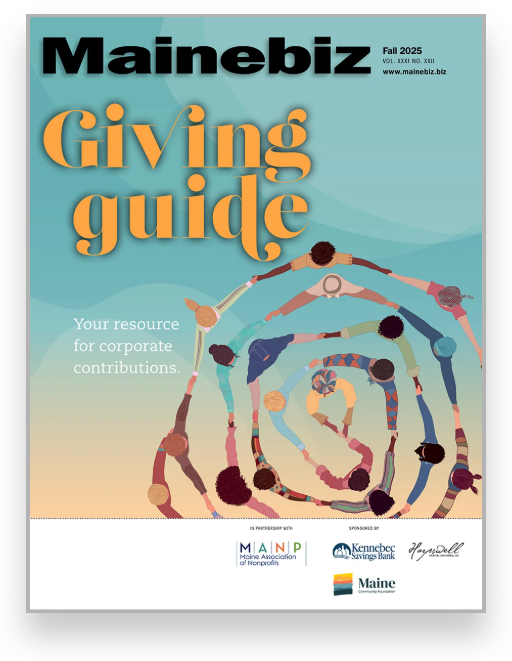
Processing Your Payment
Please do not leave this page until complete. This can take a few moments.
- News
-
Editions
View Digital Editions
Biweekly Issues
- October 20, 2025
- October 6, 2025
- September 22, 2025
- September 8, 2025
- August 25, 2025
- August 11, 2025
- + More
Special Editions
- Lists
- Viewpoints
- Our Events
- Calendar
- Biz Marketplace
Maine aquaculturists issue nation’s first occupational standards for growing industry
 Courtesy / Maine Aquaculture Association
New occupational standards in the aquaculture industry include ones for shellfish harvesters, like this oyster farm.
Courtesy / Maine Aquaculture Association
New occupational standards in the aquaculture industry include ones for shellfish harvesters, like this oyster farm.
In a sign that the industry is rapidly maturing, the Maine Aquaculture Association in Hallowell this week released a set occupational standards for marine farming — the first such benchmarks in the country, the group said.
"Based on a strong collaboration between the farmers and the educational community, these standards will help ensure that Maine aquaculture businesses have the skills and training needed to compete in a global market,” Executive Director Sebastian Belle said in a news release.
Workforce skills
The standards specify workforce skills and training needs of Maine’s aquaculture sector. Altogether, standards were released for four sectors:
- Marine shellfish and sea vegetables
- Marine finfish
- Land-based recirculating aquaculture systems
- Land-based shellfish hatcheries

The standards are intended to give education and training providers a comprehensive understanding of specific technical skills and knowledge considered critical for the most common careers in each sector. The document is also designed to standardize workforce training in the state and establish an industry-led process to align training with workforce needs as industry and workforce needs evolve.
Industry input
The standards are based on industry input from one-on-one interviews with commercial businesses across Maine. They are a pillar of the recommendations from the Maine Aquaculture Workforce Development Strategy, a report produced by the Gulf of Maine Research Institute in partnership with the Maine Aquaculture Association and Educate Maine and sponsored by FocusMaine.
Although Maine’s aquaculture industry is small, compared with seafood farming elsewhere in the nation and the world, it’s becoming increasingly diversified and is expected to grow.
Currently, Maine’s aquaculture workforce exceeds 600 direct employees, plus auxiliary services and supported trades, according to the report.
By 2022, the workforce is projected to include 880 employees across production and related activities, and over 1,600 across the supply chain. By 2030, the workforce could exceed 1,200 direct employees, and over 2,200 in the total production, supply chain and downstream markets.

The Maine Aquaculture Association, which has a track record of over 25 years of developing operating standards and best management practices for aquaculture sector, worked with the Gulf of Maine Research Institute to build on top of the report’s findings by conducting the interviews. The draft standards were then shared with the Maine aquaculture sector and educational community for final review and edits.
The standards are segmented into several sections based on the sector, type of work and job title, with a table of contents.

"The development of these first-of-their-kind standards shows once again that Maine's sea farmers are leading the nation in the emergence of a competitive and sustainable domestic aquaculture sector," said Belle.
The association also released a supplementary document, the Maine Shellfish Aquaculture Career Pathways Map, designed to provide an overview of the most common job types, entry points and career pathway opportunities in Maine’s shellfish aquaculture sector.
A number of Maine institutions off training programs for careers in aquaculture, including Mid-Coast School of Technology, Coastal Washington County Institute of Technology, Presque Isle Regional Career and Technical Center, Maine Ocean School, Washington County Community College, Southern Maine Community College, Aquaculture Research Institute, Unity College, College of the Atlantic, Maine Maritime Academy, University of Maine and University of New England.
Although none of the programs fully meet the occupational standards, all of the institutions are working to bring their programs into alignment with the new standards.
Mainebiz web partners
Related Content

The Giving Guide
The Giving Guide helps nonprofits have the opportunity to showcase and differentiate their organizations so that businesses better understand how they can contribute to a nonprofit’s mission and work.
Learn More
Work for ME
Work for ME is a workforce development tool to help Maine’s employers target Maine’s emerging workforce. Work for ME highlights each industry, its impact on Maine’s economy, the jobs available to entry-level workers, the training and education needed to get a career started.
Learn More
Groundbreaking Maine
Whether you’re a developer, financer, architect, or industry enthusiast, Groundbreaking Maine is crafted to be your go-to source for valuable insights in Maine’s real estate and construction community.
Learn more-
The Giving Guide
The Giving Guide helps nonprofits have the opportunity to showcase and differentiate their organizations so that businesses better understand how they can contribute to a nonprofit’s mission and work.
-
Work for ME
Work for ME is a workforce development tool to help Maine’s employers target Maine’s emerging workforce. Work for ME highlights each industry, its impact on Maine’s economy, the jobs available to entry-level workers, the training and education needed to get a career started.
-
Groundbreaking Maine
Whether you’re a developer, financer, architect, or industry enthusiast, Groundbreaking Maine is crafted to be your go-to source for valuable insights in Maine’s real estate and construction community.
ABOUT
NEW ENGLAND BUSINESS MEDIA SITES
No articles left
Get access now
In order to use this feature, we need some information from you. You can also login or register for a free account.
By clicking submit you are agreeing to our cookie usage and Privacy Policy
Already have an account? Login
Already have an account? Login
Want to create an account? Register
Get access now
In order to use this feature, we need some information from you. You can also login or register for a free account.
By clicking submit you are agreeing to our cookie usage and Privacy Policy
Already have an account? Login
Already have an account? Login
Want to create an account? Register











0 Comments